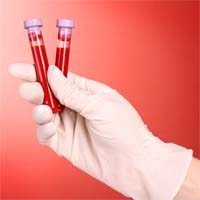Understanding Mesothelioma: Clues in the Blood

Pleural mesothelioma is a tough cancer caused by asbestos. It’s hard to treat because it is rare and grows differently in people. A recent study tried to find clues that could help doctors figure out how to treat mesothelioma better.
Helping Treat Mesothelioma
In this study, they looked at 98 people with pleural mesothelioma. Researchers checked the patient’s blood for a few different factors. They wanted to see if a patient’s blood could tell how long someone might live with this cancer. They also wanted to use a patient’s blood to predict which treatment may work best for them. Researchers also learned from what treatments had worked for these patients in the past.
Some treatments like surgery or multi-modal treatment seemed to help some patients live longer. They also noticed that certain things in the blood might mean someone could live longer. This included having more red blood cells and fewer platelets or a specific ratio of platelets to other blood cells.
Researchers also saw that certain factors were important for these patients. Factors included what type of mesothelioma someone had or the kind of surgery they got. Some things in the patient’s blood, like CRP levels and platelets, were also important.
Important Clues for Mesothelioma Patients
Doctors find it hard to treat pleural mesothelioma. It grows differently in different people and tumors grow at different speeds. Now researchers are looking at things in the blood that might predict how well someone might do with treatment. This includes certain cells and platelets in the blood, which can show if there’s inflammation. These factors have been helpful in figuring out how patients might do.
Recent studies also talk about how the body’s defense system might affect pleural mesothelioma. This could also help to find new things in the blood to know how someone might do with treatment. This is especially true with new treatments like immunotherapy.
With new treatments getting attention and doctors rethinking surgeries, finding signs in the blood is important. This could help figure out who might do well with new treatments. It could also help doctors stop treatments that might not help. And it helps doctors make personalized treatments for pleural mesothelioma patients.
Source:
Iser, Stephanie, Sarah Hintermair, Alexander Varga, Ali Çelik, Muhammet Sayan, Aykut Kankoç, Nalan Akyürek, et al. “Validation of Inflammatory Prognostic Biomarkers in Pleural Mesothelioma.” Cancers 16, no. 1 (January 2024): 93. https://doi.org/10.3390/cancers16010093





